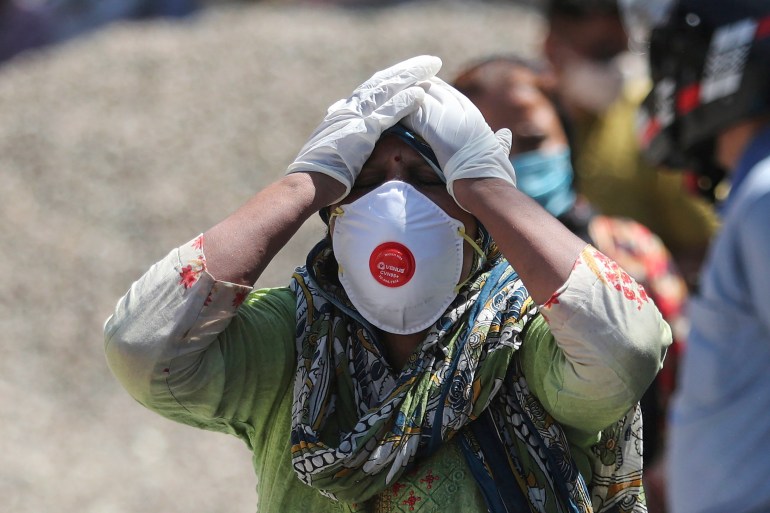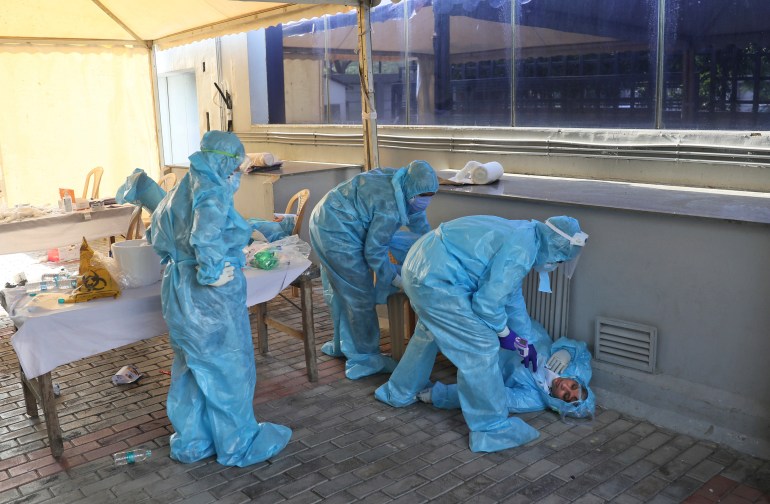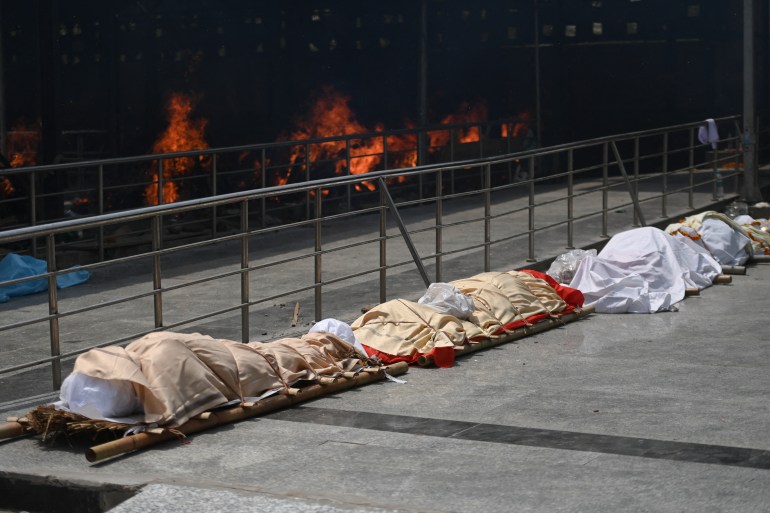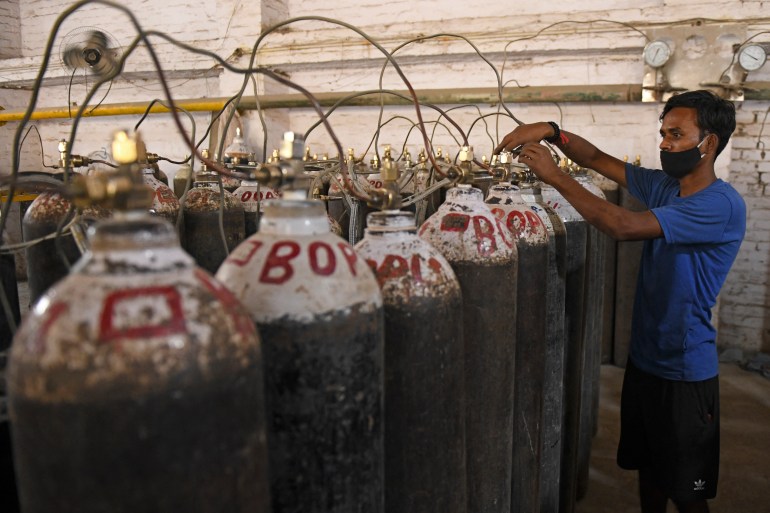India COVID death toll tops 200,000 as essential supplies run out
India’s death toll from COVID-19 has crossed the grim milestone of 200,000 as the country continued to face shortages of hospital beds, medical oxygen and other essential supplies.
A calamitous second wave of the coronavirus has seen at least 300,000 people test positive each day for the past seven days, overwhelming health facilities and crematoriums and prompting an increasingly urgent response from allies overseas sending equipment.
The health ministry on Wednesday recorded 360,960 new cases in the previous 24 hours, for the world’s largest single-day total, taking India’s tally of infections to nearly 18 million. It was also the deadliest day so far, with 3,293 fatalities carrying the toll to 201,187.
Ten states in the world’s second-most populous country account for 74 percent of cases, including the worst-hit areas of Maharashtra and New Delhi which are under lockdown, Infections have overburdened healthcare systems and funeral sites.
Shortage of wood for funeral pyres
In the capital New Delhi, car parks have been converted to crematoriums and the soaring body count has sparked a shortage of wood for funeral pyres.
Desperate relatives of the sick are crowding outside hospitals and pharmacies in search of treatment and medicines, often in vain.
Arriving in cars, rickshaws and ambulances, patients and their families desperate for oxygen flocked to a tent outside a Sikh place of worship on the outskirts of the capital this week.
Priyanka Mandal, 30, had been searching for oxygen for her mother since she became sick a week ago.
“Medicines are also not available … I’ve visited five, six big medical stores,” she told AFP.
“No matter how much time it takes, I have to wait here … I only have my mum.”
World leaders respond
India ranks second behind the United States’s 32.1 million cases, while its death toll is fourth behind the US, Brazil and Mexico, which have all crossed the 200,000 mark.
But, with about 300,000 cases and 3,000 deaths recorded a day, India is likely to cross more bleak milestones in the future.
According to the World Health Organization (WHO), India accounted for 38 percent of the 5.7 million cases reported globally last week.
Countries around the world have promised to deliver rapid aid to stem the crisis. On Wednesday, Russia said it would send 75 ventilators, 20 plants for generating oxygen and 200,000 packs of medicine.
The Czech Republic announced it will send 500 oxygen cylinders, together with Austria, the government said in a statement. United Kingdom Foreign Secretary Dominic Raab said his country will send three container-sized oxygen factories.
However, UK Health Secretary Matt Hancock said the country was currently not in a position to give India any vaccines.
“We don’t have any excess doses of vaccine in the UK at the moment,” he said at a news conference.
Vaccine shortage
Meanwhile, India on Wednesday opened COVID-19 vaccine registrations for everyone older than 18 years, hoping them inoculated starting Saturday.
Soon after registration opened, there were complaints that government websites and apps were not working. Government officials later said a minor glitch had been fixed.
The government Co-Win site was getting almost 2.7 million hits a minute, official sources told broadcaster NDTV. Vaccinations will only be administered by appointment and no walk-ins will be allowed.
However, it is still unclear how the country will inoculate an additional 600 million people now eligible, given the shortage of shots.
India is among the biggest vaccine producers, but after the government allowed people aged 45 and over to get inoculated, some sites ran out of shots.
New variants
The factors driving India’s second wave remain unclear, but some experts have said the rapid spread of cases in India can be attributed to more infectious variants, including B1617, a so-called double mutation detected in India, as well as people’s failure to observe safety measures.
The government has been criticised for allowing state election rallies and lengthy festivals to take place, attended by tens of millions in what may have been super-spreader events.
Preliminary modelling showed that the B1617 variant had a higher growth rate than other variants circulating in the country, suggesting increased transmissibility, the WHO said.
Offering a glimmer hope, the co-founder of BioNTech – which developed a COVID-19 vaccine with Pfizer – said he is confident the shot works against the variant.
“We are still testing the Indian variant, but the Indian variant has mutations that we have already tested for and which our vaccine works against, so I am confident,” said Ugur Sahin.




